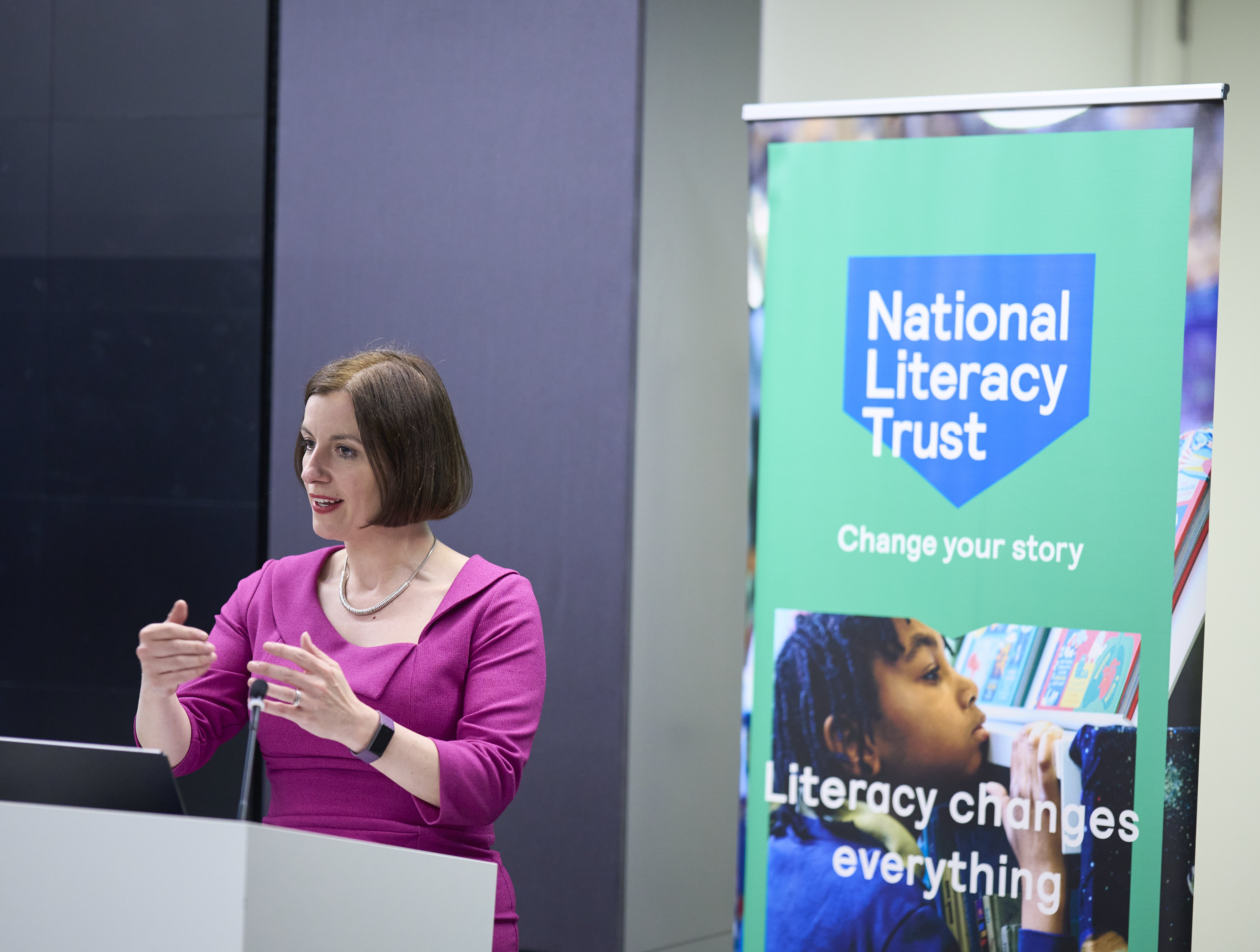What is the Vision for Literacy Business Pledge?
The award-winning Vision for Literacy Business Pledge provides a framework for businesses to play a leading role in the future of literacy.
Over the last 10 years, the Vision for Literacy Business Pledge has been pioneering in its role to galvanise the business community, with 110 of the UK’s leading businesses pledging to position literacy at the heart of their responsible business agenda. Thanks to the generous support of KPMG, the Pledge has been nominated for multiple accolades, winning two Business Charity Awards.
Celebrating ten years of the Vision for Literacy Business Pledge
Rt Hon Bridget Phillipson MP, Secretary of State for Education, joined us with our partners at KPMG UK to celebrate the 10th anniversary of the Vision for Literacy Business Pledge, where she addressed the audience with warm words about the benefits of reading for pleasure and acknowledged the role of partnership working in the future of literacy.

How have some of our Pledge signatories changed children’s life stories over the past decade?
WHSmith
WHSmith and the National Literacy Trust have a long-established partnership spanning nearly two decades. The partnership covers many areas, including fundraising through WHSmith stores, book donations and campaign activity, and funding for our Young Readers Programme.
“They were fun because there were so many books. I’ve probably never seen that many!”
A pupil from Swindon after taking part in the Young Readers Programme
Lancôme
Lancôme and the National Literacy Trust came together in their shared passion for empowering young women with the confidence and literacy skills they need to thrive. The Words for Work: Women in Leadership programme has supported over 6,000 young women and non-binary students, introducing them to inspiring women and role models, and developing their communication and leadership abilities to fulfil their full potential.
“I thought the programme was very insightful and I actually realised that the literacy we do at school is as important as my teachers have said, for when I leave school and start my career!”
Feedback from one young student participant
Sign our 10th Vision for Literacy Business Pledge 2025
Our country’s future prosperity will be driven by the productivity of the next generation.
But in 2024, almost a quarter of 11-year-olds left primary school without the reading and writing skills they need to thrive. The reality is even starker for children from disadvantaged backgrounds: they become part of the cycle of intergenerational poverty and low literacy.
We are facing a future with a workforce that does not have the language and communication skills for a thriving economy and society.
- 9 in 10 (88%) businesses are concerned about young people’s level of literacy in the workplace
- 1 in 5 (20%) business leaders said poor literacy skills were a significant problem for their business
The reading for pleasure crisis
Reading for pleasure is a crucial part of literacy, supporting a child’s reading skills, success at school, as well as their wellbeing, empathy, and confidence. Despite this, National Literacy Trust research shows that reading for pleasure is at a crisis point, with two thirds of children and young people saying they do not enjoy reading in their free time.
Creating a culture of reading for pleasure, in school and at home, will:
- empower children to build the skills they need to thrive at school and beyond
- help create a literate workforce, capable of driving innovation and growth, and,
- could boost the UK’s GDP by £4.6 billion every year.*
*Research from the National Literacy Trust and British Land shows that increasing daily reading for pleasure could boost the UK’s GDP by £4.6 billion every year.
But together, we can change that story.
How you can be part of the solution
As we celebrate 10 years of the Vision for Literacy Business Pledge, we continue to call for collaborative working between the public, private, and third sector to play a role in the future of literacy.
If your business wants to play a role in the future of literacy, please email us at partnerships@literacytrust.org.uk.
